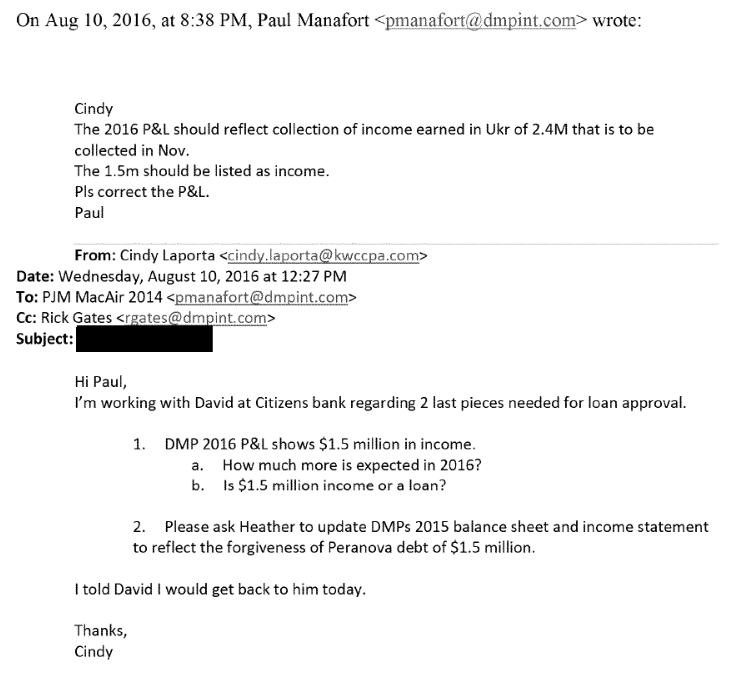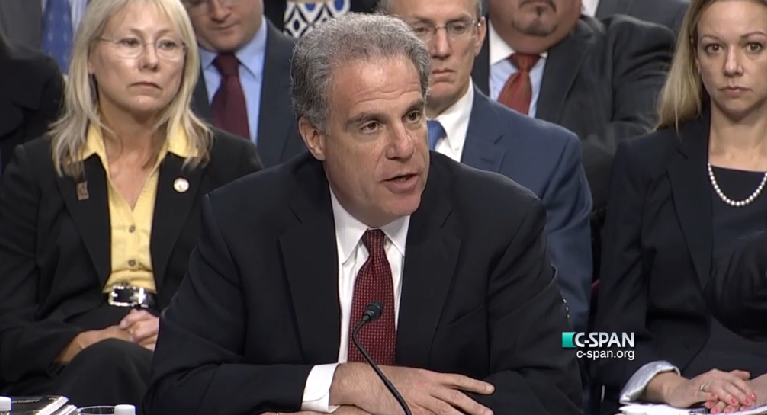The Carter Page IG Report Debunks a Key [Impeachment-Related] Conspiracy about Paul Manafort
I’m still working on my multi-post deep dive into the substance of the IG Report on the Carter Page FISA.
But for now, it’s worth pointing out a detail from it that debunks a key conspiracy that Rudy Giuliani is chasing as he tries to hasten his client’s impeachment.
The Report describes that the investigation into Paul Manafort that resulted in conviction in EDVA and a guilty plea in DC started in January 2016, before he joined the Trump campaign.
In addition to Ohr’s interactions with the FBI and Steele in connection with the Crossfire Hurricane investigation, Ohr also participated in discussions about a separate money laundering investigation of Paul Manafort that was then being led by prosecutors from the Money Laundering and Asset Recovery Section (MLARS), which is located in the Criminal Division at the Department’s headquarters. That criminal investigation was opened by the FBI’s Criminal Investigation Division in January 2016, approximately 2 months before Manafort joined the Trump campaign as an advisor, and concerned allegations that Manafort had engaged in money laundering and tax evasion while acting as a political consultant to members of the Ukrainian government and Ukrainian politicians.
As expressed by propagandists like John Solomon, the investigation into Manafort’s corruption was actually “resurrected” later that year, in response to the publication of the Black Ledger (which he falsely said was a suspected fake).
The second document, known as the “black cash ledger,” remarkably has escaped the same scrutiny, even though its emergence in Ukraine in the summer of 2016 forced Paul Manafort to resign as Trump’s campaign chairman and eventually face U.S. indictment.
In search warrant affidavits, the FBI portrayed the ledger as one reason it resurrected a criminal case against Manafort that was dropped in 2014 and needed search warrants in 2017 for bank records to prove he worked for the Russian-backed Party of Regions in Ukraine.
Based on this false claim, Solomon and Rudy have claimed that Serhiy Leshchenko’s publication of the ledger (but not the entries pertaining to Manafort) was part of a Ukrainian plot to defeat Trump by falsely (they suggest) portraying Manafort as corrupt.
But the Black Ledger is not what “resurrected” the investigation into Manafort. It had started long before that, even before Manafort knew (two months before it was public) that he was included in the Black Ledger. Indeed, Manafort was under investigation when Trump hired him.
Note, too, that contrary to Trump’s wails, there would be no reason to give him a defensive briefing about Manafort, as this was not a counterintelligence investigation. Indeed, the Manafort investigation remained focused on his corruption well into 2017. If you hire a spy, you might hope that the FBI would warn you. But if you hire an epically corrupt influence peddler, you own the consequences of that.
OTHER POSTS ON THE DOJ IG REPORT
Overview and ancillary posts
DOJ IG Report on Carter Page and Related Issues: Mega Summary Post
The DOJ IG Report on Carter Page: Policy Considerations
Timeline of Key Events in DOJ IG Carter Page Report
Crossfire Hurricane Glossary (by bmaz)
Facts appearing in the Carter Page FISA applications
Nunes Memo v Schiff Memo: Neither Were Entirely Right
Rosemary Collyer Responds to the DOJ IG Report in Fairly Blasé Fashion
Report shortcomings
The Inspector General Report on Carter Page Fails to Meet the Standard It Applies to the FBI
“Fact Witness:” How Rod Rosenstein Got DOJ IG To Land a Plane on Bruce Ohr
Eleven Days after Releasing Their Report, DOJ IG Clarified What Crimes FBI Investigated
Factual revelations in the report
Deza: Oleg Deripaska’s Double Game
The Damning Revelations about George Papadopoulos in a DOJ IG Report Claiming Exculpatory Evidence
The Carter Page IG Report Debunks a Key [Impeachment-Related] Conspiracy about Paul Manafort
Sam Clovis Responded to a Question about Russia Interfering in the Election by Raising Voter ID







